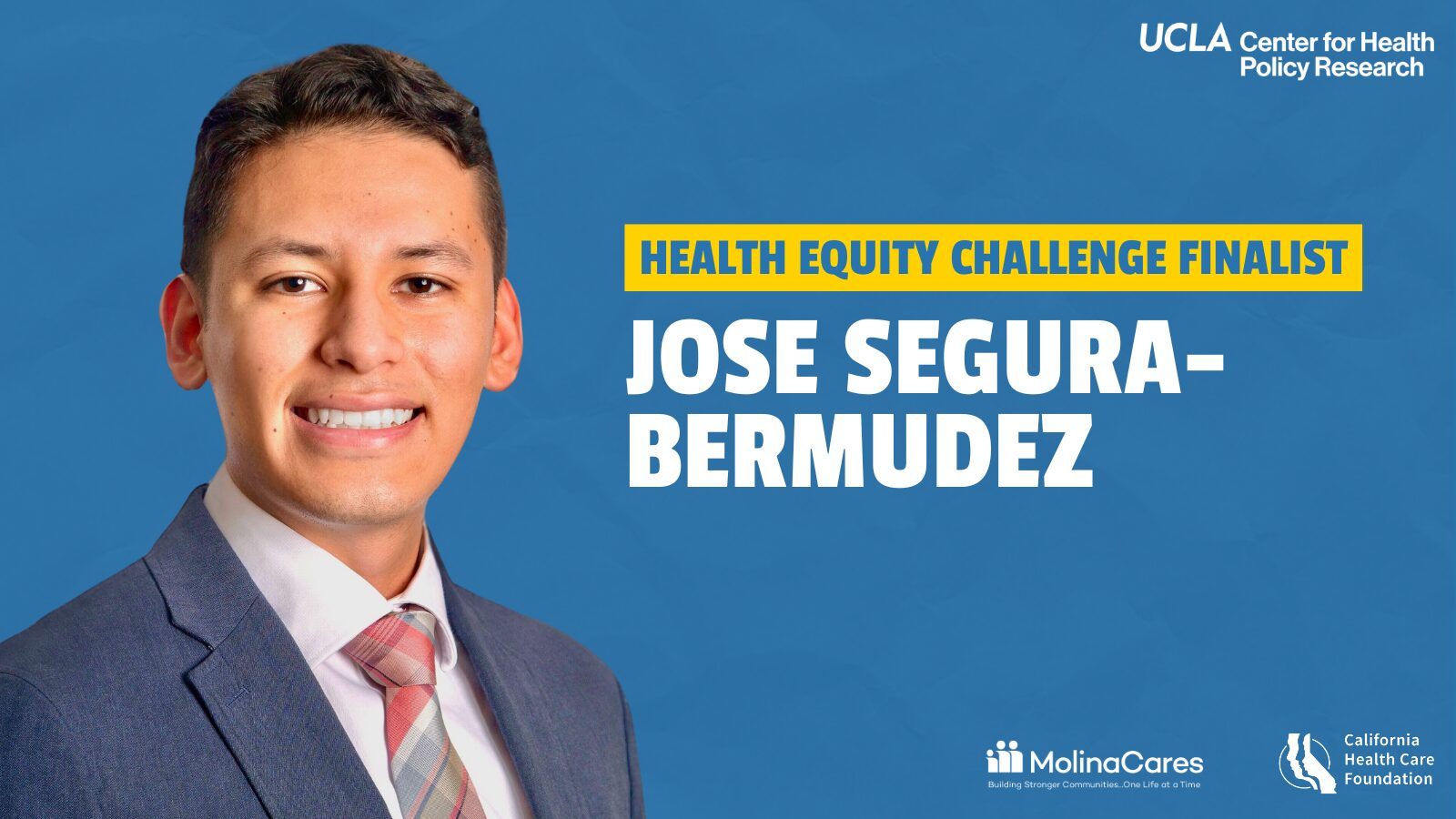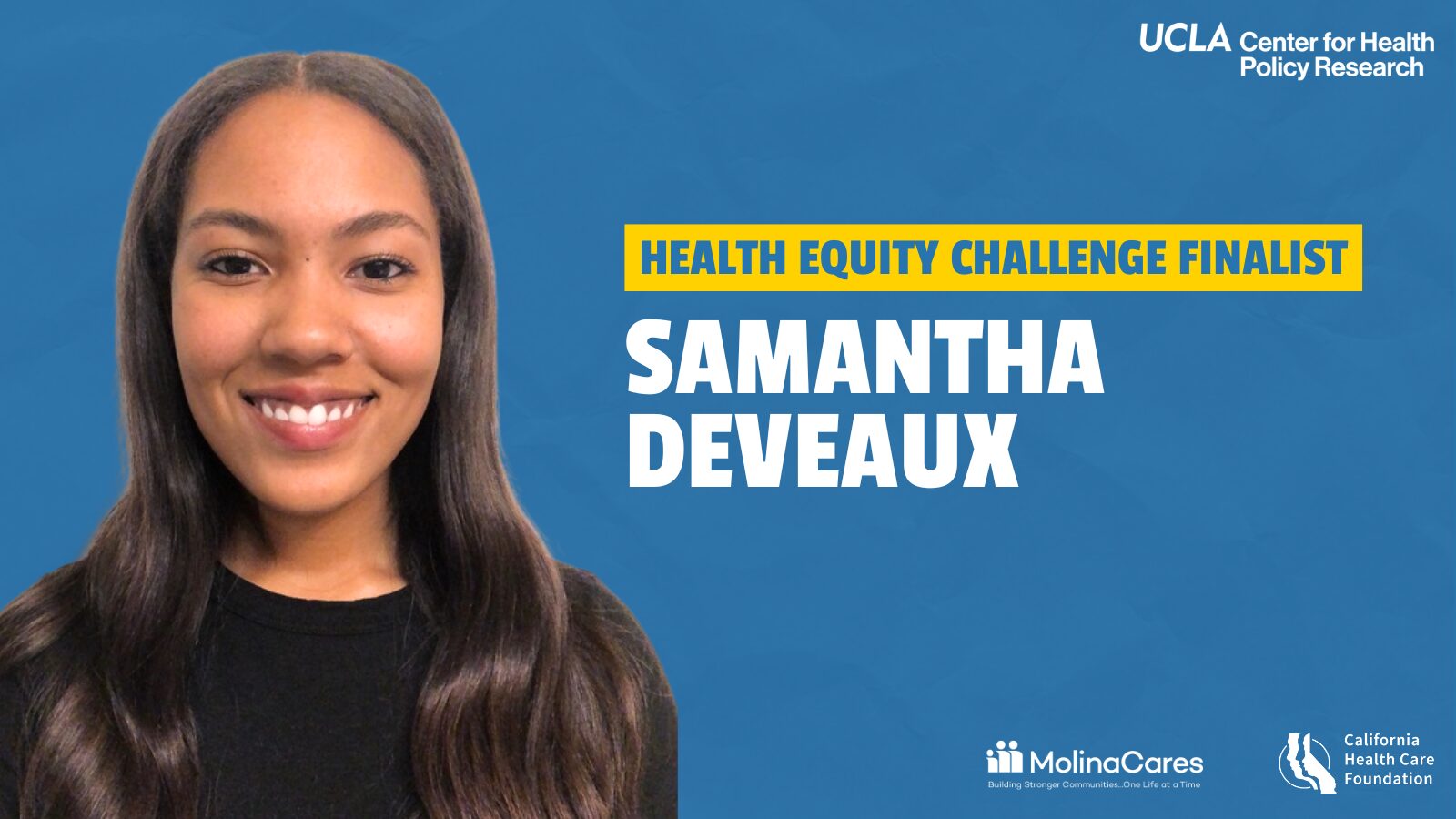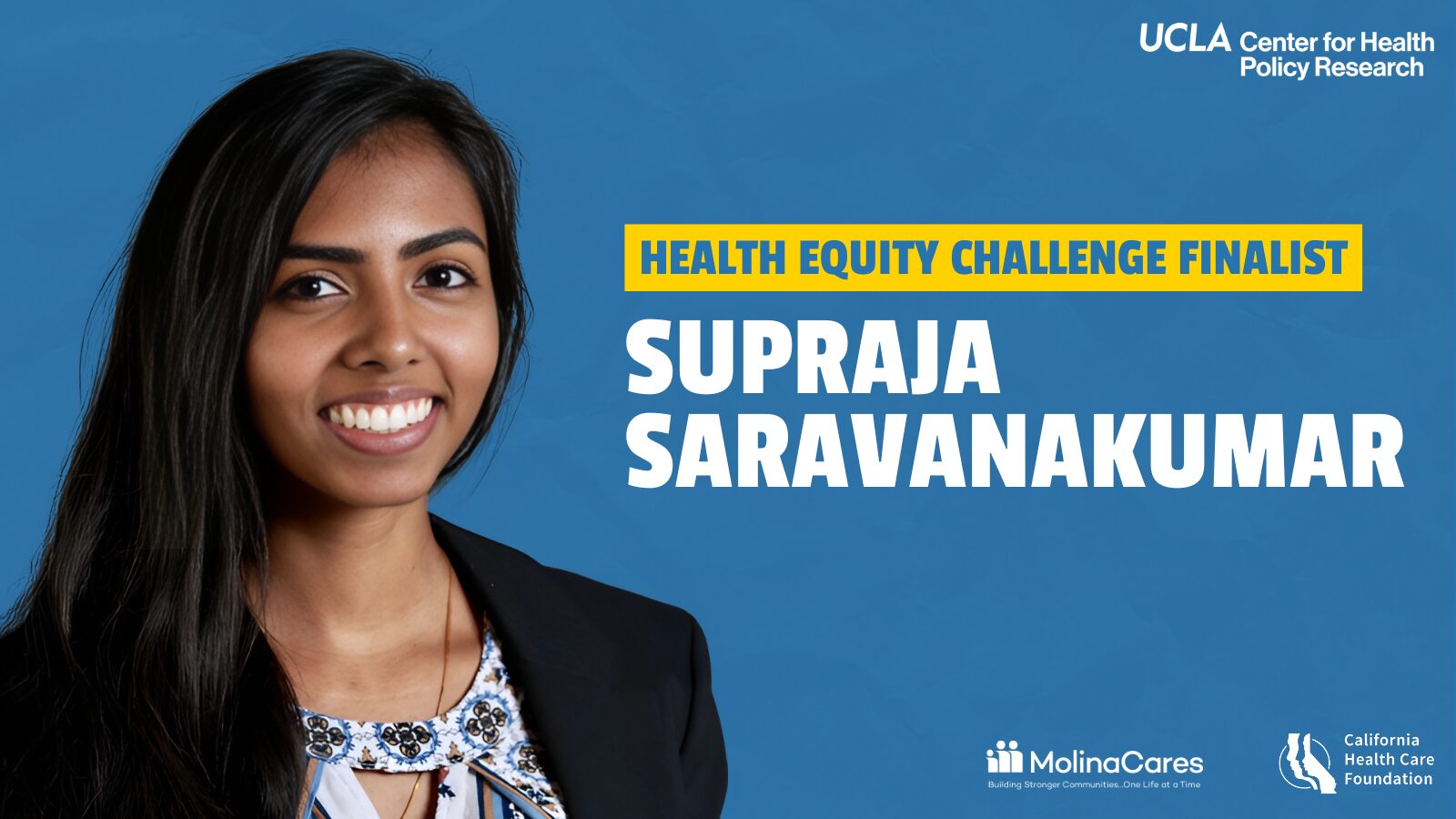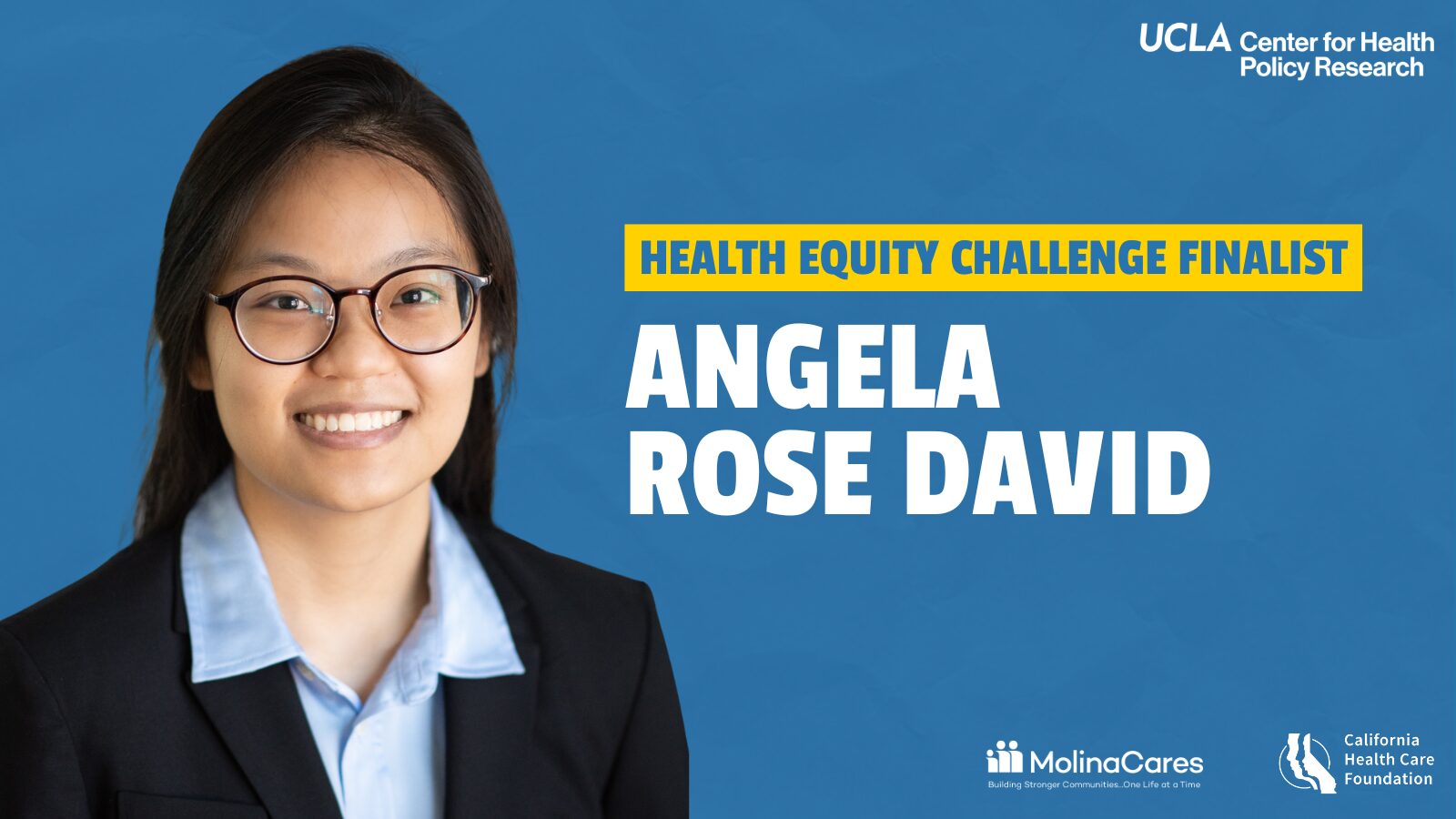
Radiate Health is my UCLA Health Equity Challenge project that centers around an HIV self-testing kit tailored to the Latinx community that hopes to increase frequent testing, reduce the negative stigma around HIV, and increase HIV education.
Alongside Dr. Hrishikesh Belani, MD, MPH, and our outstanding community-based organization, Bienestar Human Services, Inc., we have worked together to create a proposal that, first and foremost, centers around the needs of the Latinx community. Soon, I will be able to share our work; however, I wanted to make this blog post more about how I became interested in public health and the Latinx community.
I am a first-year medical student at the David Geffen School of Medicine, born in Oaxaca, Mexico. My large and loving family there filled me with joy and energy. My grandfather was a large part of my family growing up. I often sat on the mossy cobblestone stairs which led to his house. Usually, the soles of his shoes would disrupt the silence as they drummed away when he rushed to cover a story as a reporter.
However, this frequency began to fade as his health deteriorated. His type 2 diabetes diagnosis did not let him run around so regularly; therefore, I often helped him with his errands. These memories were my first exposure to a medical condition and its impacts.
When I was six years old, my family immigrated to Ohio. Such a move changed my outlook on life and who I am today. It made me adaptable, as I had to learn a new language from scratch. I also realized that I had become fearless towards new challenges and questioning anything. These were all skills I would later use in my career and currently throughout the Health Equity Challenge. However, there were also downsides to moving to the United States.
For example, I could not see my grandfather or large family anymore. However, I was reminded of him when our newly established immigrant friends would discuss diseases like diabetes. Our community would talk about many problems they would have from head to toe. They would complain about the difficulty of getting treated unless it was an emergency.
The reason for this was a culmination of several socioeconomic factors and fears that inhibited access to care. As a kid, I could not believe that people who lived in such a prosperous country had to suffer because of socioeconomic factors. I can articulate these ideas in precise language now, but at the time, I remember being only perplexed and would badger my mother with many questions about it.
Fast forward to college, I volunteered at La Clinica Latina, a free Latinx clinic, because their mission resonated with my childhood of loved ones who could not get adequate health care. Working at this clinic, patients would ask about my background.
“Hearing that I was also an immigrant would bring a sigh of relief because they felt that they could trust me. They would then be more comfortable explaining why they needed to see a physician. I carefully listened to their stories and tried to effectively interpret their concerns in the medical system so that they could receive appropriate treatment.”
Hearing that I was also an immigrant would bring a sigh of relief because they felt that they could trust me. They would then be more comfortable explaining why they needed to see a physician. I carefully listened to their stories and tried to effectively interpret their concerns in the medical system so that they could receive appropriate treatment.
Patient interactions like this warmed my heart while volunteering at La Clinica Latina. It made me appreciate the resilience that is so apparent in all immigrants. However, it also made me angry at the injustices that the Latinx community faced. This feeling propelled me to choose medicine as a career path. Most importantly, it lit a flame of wanting to do more for this and other underserved populations.
Therefore, I jumped at the opportunity to become an outreach coordinator for the Columbus Free Clinic. This role allowed me to continue interacting with Latino patients, but now I could plan outreach events for several underserved populations. During our events, we identified risk factors, connected people to primary care, performed medical exams, and connected patients with organizations willing to help underserved communities. These small events were so successful that I created an initiative for the Latinx population – Salud Basica Gratuita (SBG).
SBG’s first event went great! We were able to check blood pressure and glucose for several patients and provided other services like breast exams and STD checks. We had built a model that could be integrated throughout other immigrant communities. Furthermore, I learned many valuable lessons about organizing a large-scale healthcare event.
Interestingly, looking back at SBG, in some ways it was the precursor to Radiate Health because it made me thoroughly research the Latinx community. I delved into the literature on effectively organizing an event like this and had many conversations with community leaders.
That is what made me realize that there exists a certain stigma and lack of education around STDs in the Latinx world. Alongside this reality, there also exists a health disparity among the HIV rates in the Latinx community across the country.
My interest in medicine started with my grandfather and was invigorated by my immigrant childhood. Volunteering at La Clinica Latina made me connect with the Latinx community and sparked a fuse that led me to work as a community outreach coordinator.
Performing preventative exams, using my Spanish to connect with patients, providing medical education, and developing plans to improve health in underserved communities made me excited about the potential to do this and more as a medical student. I am fortunate enough to have the opportunity to do just that through Radiate Health.
In conclusion, I hope my story paints a picture of my motivations and perspective for participating in the UCLA Health Equity Challenge. I am very fortunate to be chosen as a finalist, and my work is only a culmination of all those who have supported me. Furthermore, it is also the molding of my community, which I hope to make proud. A darle con todo!

By Jose Segura-Bermudez
2024 Health Equity Challenge Finalist
Jose Segura-Bermudez is a medical student at the David Geffen School of Medicine at UCLA. He is originally from Oaxaca, Mexico, and as a child immigrated to Ohio, where he grew up. As a future medical professional, he hopes to integrate his community involvement with scientific research to implement significant health improvements for underserved communities.
continue reading
Related Posts
Coming from a low-income community of color, I personally witnessed how generations of systemic racism and economic corruption have led to a powerful mistrust in the health care system.
Postpartum depression (PPD) is a silent struggle for many new mothers, but for South Asian women, cultural stigmas and generational pressures often exacerbate this already challenging condition. As a woman of color and a first-generation college graduate, I have walked a path shaped by the nuances of both my cultural heritage and my academic pursuits.
The scent of antiseptic and tapioca pudding wafted through the air. Placing the empty food tray on my borrowed cot, I glanced around my grandparents' shared room. Clunky metal beds, a suitcase full of clothes, and a bulletin board on the wall filled with doctor notes and medication lists.



